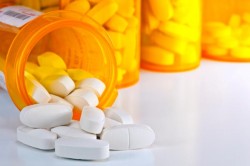Types of Help Available for Prescription Drug Abuse
According to the NIDA, “Years of research have shown that addiction to any drug (illicit or prescribed) is a brain disease that can be treated effectively.” While there are three main types of addictive and commonly abused prescription drugs (opioids, depressants, and stimulants), there are several types of helpful treatments available for those who want to recover.
Treatment Facilities
If you are an individual who has become addicted to prescription drugs or abuses them often, you may want to consider attending a treatment program at either an inpatient or outpatient facility.
- Inpatient facilities – These treatment centers provide 24-hour care and a comfortable and controlled environment where patients can focus on their recoveries. These types of facilities are usually more successful for patients with extreme psychiatric severity (intense addictions, cravings, and possibly other mental disorders as well) and a poor support system at home.
- Outpatient facilities – These centers allow patients to come and go from treatment and provide them with the chance to recover as they continue to live their everyday lives. These are more successful for those individuals who have a strong support system at home and low or no psychiatric severity.

There are a variety of methods to treat prescription drug addiction.
Many of these facilities provide help specifically for those who were abusing or addicted to prescription drugs. They also provide two of the best and most commonly used treatments for prescription drug abusers.
Medication
Medication can help the individual stop abusing prescription drugs, and it can slowly help them detox while controlling their withdrawal symptoms. As stated by the NIDA, medications used to treat opioid addiction and abuse “counter the effects of the drug on the brain and behavior.” These medications are:
- Opioids
- Buprenorphine- a partial opioid agonist
- Methadone- a synthetic opioid agonist
- Naloxone- an opioid antagonist
A person might be weaned off of depressants when they are going through substance use recovery. Stimulant abusers will likely be helped in the same way. All of these uses of medication to take the individual off of abused prescription drugs helps make the process safer, less uncomfortable, and more successful. In addition, individuals who usually get the best results also attend behavioral treatment.
Behavioral Therapy
Prescription drug abusers who attend behavioral therapy can learn new ways to see their abuse and to find ways to fight their cravings. They also learn to recognize their triggers so that they can ideally shut down a situation that would trigger cravings before before they start.
Behavioral treatment is beneficial because it actually helps the individual see themselves in a new light, but often, managing withdrawal and cravings with medication as well can make the process much easier and more likely to work “Although a behavioral or pharmacological approach alone may be sufficient for treating some patients, research shows that a combined approach may be best” (NIDA 1).
Some types of behavioral therapy effective for treating prescription drug abuse are:
- Contingency management
- Cognitive-behavioral therapy
- Community Reinforcement
- 12-step therapy
Other Types of Help
- Talking to your doctor and asking to be weaned off the drug
- Attending a Narcotics Anonymous or another type of support group meeting
- Staying at a sober living facility
- Discussing your drug abuse with a friend or family member and asking them to help you during withdrawal and treatment







